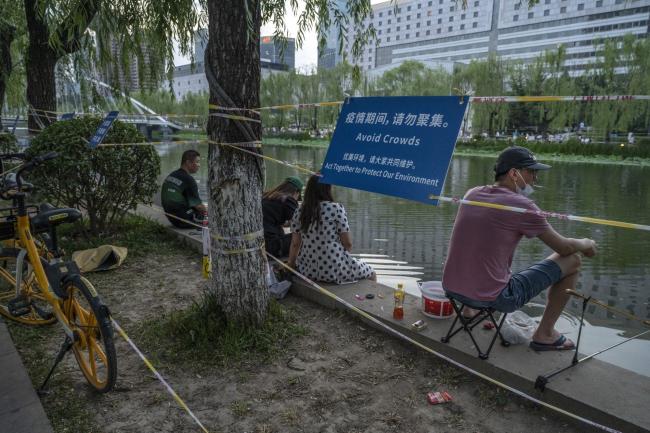(Bloomberg) -- China reported fewer Covid-19 cases in Beijing and Shanghai, with authorities moving to stimulate the faltering economy by easing some of the strictest virus controls since the initial outbreak more than two years ago.
In the capital, cases fell to 12 on Sunday, from 21 on Saturday. Curbs on movement in several districts started to be loosened yesterday after authorities said the outbreak was under control. The easing caseload has eased concern that Beijing could have been headed for a lockdown when it was reporting several dozen cases a day earlier in the outbreak despite increasingly strict restrictions.
In Shanghai, cases dropped to 67 for Sunday from 122 on Saturday. The financial hub yesterday rolled out a raft of measures to support the lockdown-hit economy, including allowing all manufacturing to restart from Wednesday.
Read more: Shanghai Unveils Economic Support Measures as Lockdowns Ease
In other moves, the city will accelerate approvals for property projects and the quota for car ownership this year will be increased by 40,000. A purchase tax for some passenger vehicles will be reduced and subsidies will be given to electric car buyers. Covid test requirements will be loosened for people entering public places from June 1 as the city tries to restore a sense of normalcy after a two-month lockdown of its 25 million population.
China’s dogged adherence to its Covid Zero policy at all costs -- epitomized by Shanghai’s lockdown and restrictions imposed elsewhere in the country of 1.4 billion -- has slowed everything from consumer spending to manufacturing in the world’s second-largest economy. The harsh curbs, which confined millions of people to their apartments or residential compounds, also sparked clashes between residents and police.
In Beijing, most public transport including buses, subways and taxis will resume in three districts including Chaoyang. Shopping centers outside of controlled areas in the city will also be allowed to reopen with capacity limits. Chaoyang is home to Beijing’s central business district, most foreign embassies and expatriates.
Workers in some Beijing districts who were required to work from home previously will be allowed to return to their workplaces, and hotels and hostels in five districts on the city’s outskirts will be permitted to reopen.
Schools and kindergartens will remain suspended and university campuses will stay closed, with students urged to go home before the summer holidays. Dining-in will still be banned at restaurants.
©2022 Bloomberg L.P.

